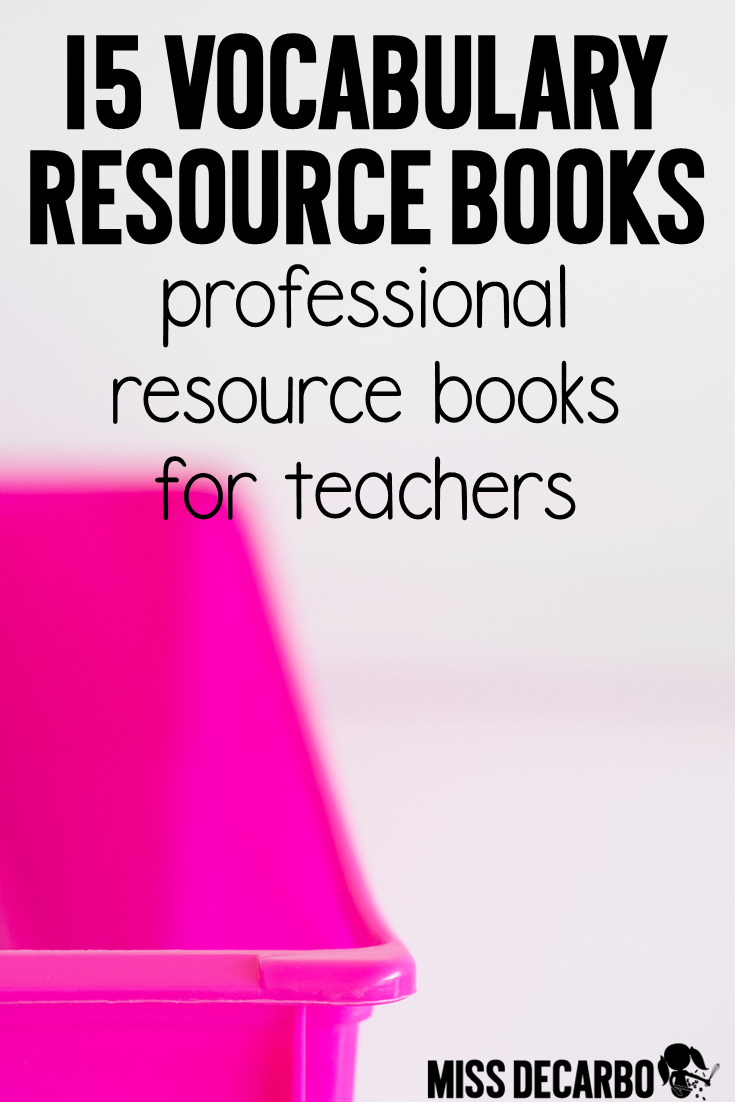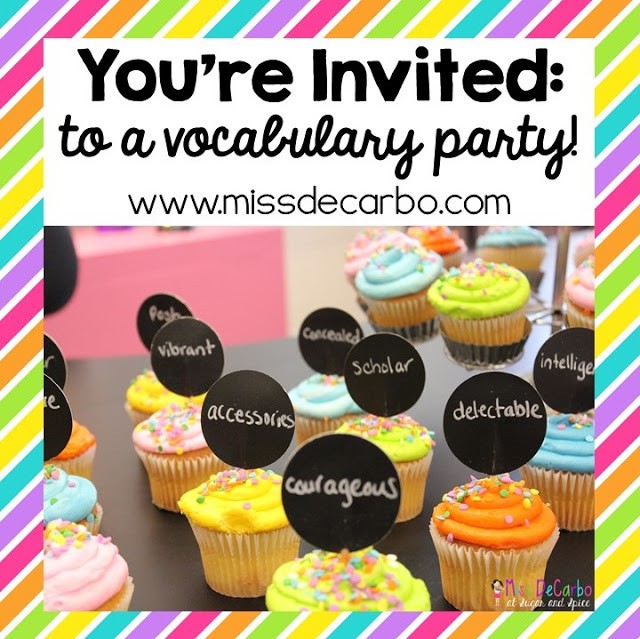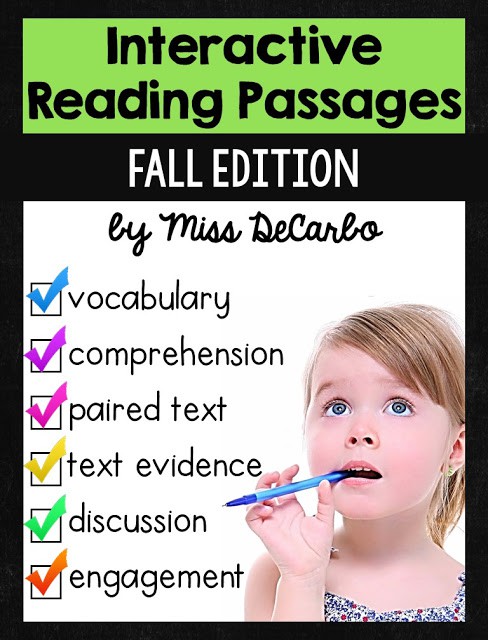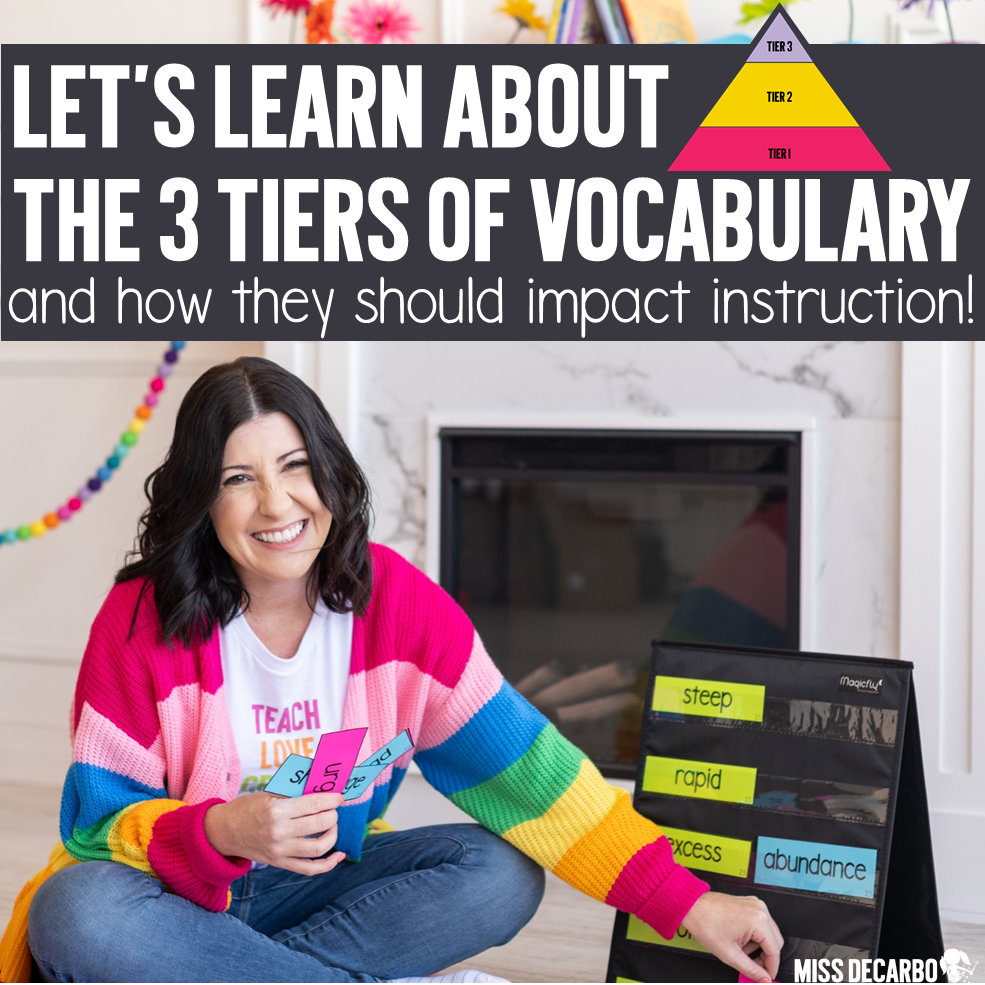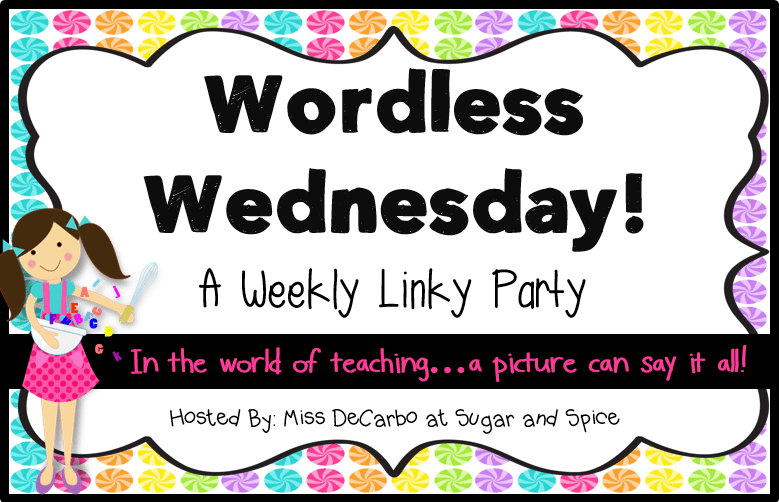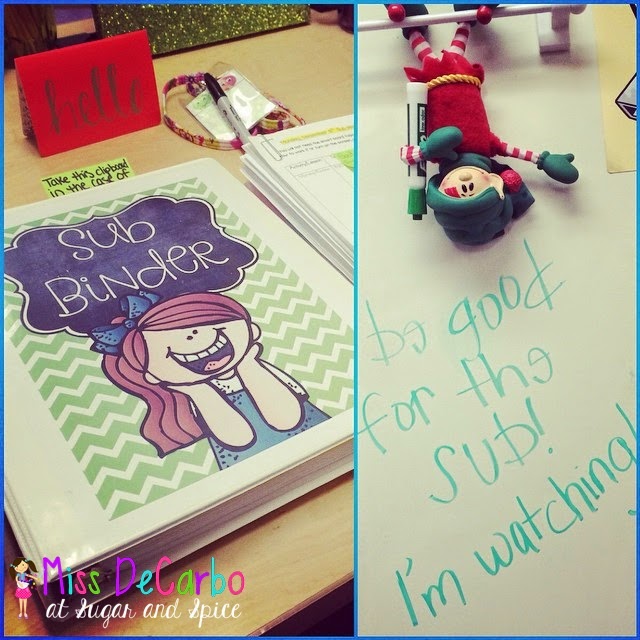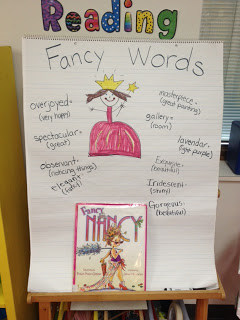15 Helpful Vocabulary Books for teachers
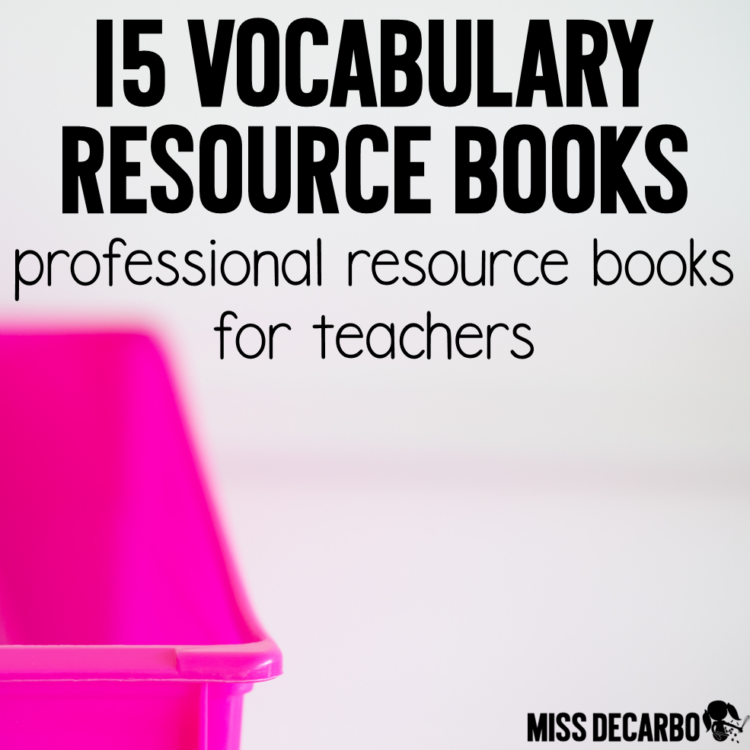
Vocabulary books for teachers
This blog post contains 15 vocabulary books that teachers can use for professional development! This list of vocabulary books includes various resource books that offer research, instructional routines, strategies, and valuable information for vocabulary development with students.
This blog post contains Amazon affiliate links. This just means my blog receives a small compensation if you make a purchase using these links. There is absolutely no extra cost to you. I hope you find the links helpful and convenient.
Ready?! Let’s dive in and take a look at this list of vocabulary books for teachers!
Bringing Words to Life
Bringing Words to Life by Isabel L. Beck, Margaret G. McKeown, and Linda Kucan will always be my first and favorite recommendation as you dive into vocabulary instruction, research, and development for your students! This book was the focus of my own learning and understanding as I developed each of my Vocabulary Activity sets. Bringing Words to Life (Second Edition) is a must-have resource for teachers who want to implement vocabulary instruction that is grounded in the science of reading.
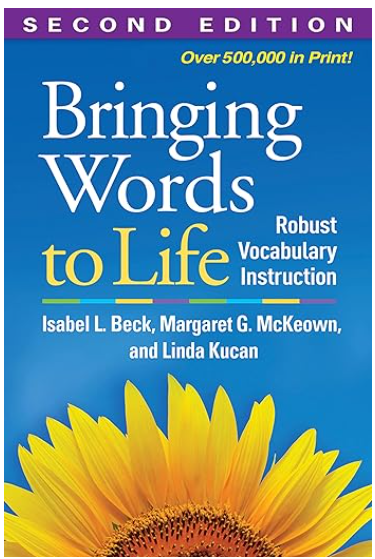
Explicit INstruction
This feels like a science of reading “bible” to me when it comes to instruction in ANY area of literacy! Anita Archer’s Explicit Instruction: Effective and Efficient Teaching book contains an invaluable chapter (chapter 3) on designing lessons for vocabulary and content. Her website also contains helpful vocabulary instructional videos that are worth checking out! You can watch Anita Archer’s vocabulary videos on her website.
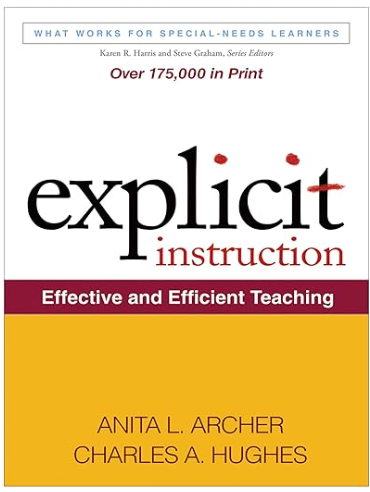
Vocabulary Handbook
I absolutely love all of the Core Literacy Library books. If you don’t already have their main book, The Reading Sourcebook, I suggest getting your hands on that one, too! The Vocabulary Handbook is specific to vocab instruction, and includes lesson models, activities with printable masters, scientific research, and even explicit scripts for teachers that are really helpful! Another vocabulary must-have!
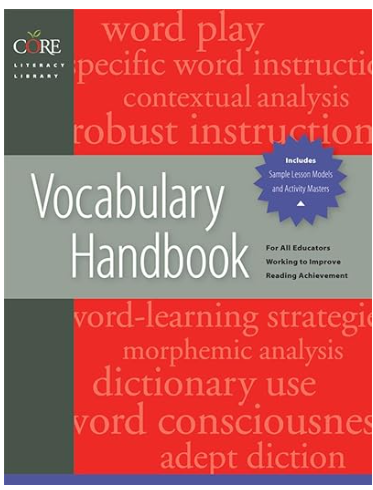
Word Nerds
Do you want to have FUN with your students while you teach vocabulary instruction and grow in your vocabulary knowledge?! Word Nerds: Teaching All Students to Learn and Love Vocabulary is a book you will fall in love with! This book is filled with tons of practical vocabulary activities and lessons that engage students and help them PLAY with words. Word play is a critical part of every one of my Vocabulary Activity lessons, and it is essential in helping students own the words you teach them. You’ll find Word Nerds to be a wonderful companion to the Vocabulary Activity sets in my shop! (If you’re not sure what word play is, you can check out a blog post I wrote about vocabulary word play here.)
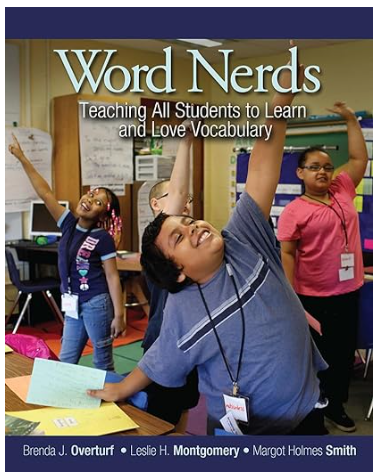
Creating robost Vocabulary
This book, Creating Robust Vocabulary: Frequently Asked Questions and Extended Examples, is a great companion to Bringing Words to Life, which was the first book in our list. The book is written by the same authors, and even includes some assessments. This book helps with both the WHY and the HOW of vocabulary instruction in the classroom!
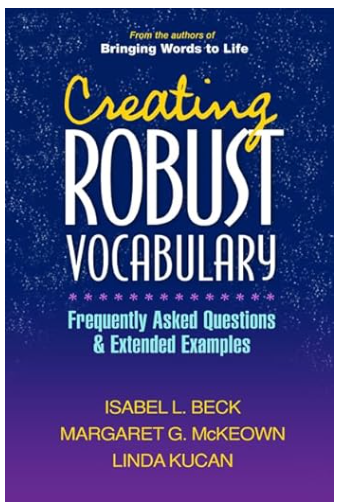
The Knowledge Gap
I simply can’t recommend a list of vocabulary professional resource books without including Natalie Wexler’s The Knowledge Gap. Vocabulary and background knowledge go hand in hand, and Natalie does an excellent job at explaining its’ importance in our students’ lives. This book was one of those “ground-breaking, life-changing, forever a staple” books for me as a reading teacher. If you haven’t read it yet, I HIGHLY recommend this one!
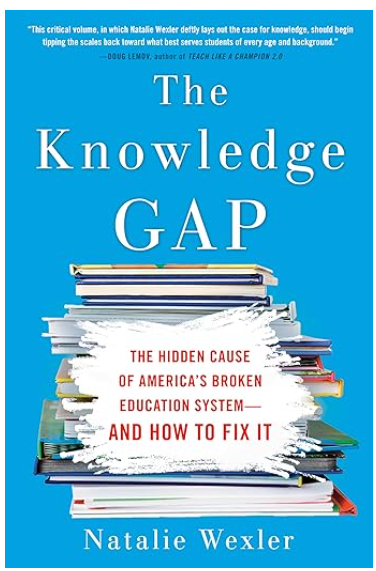
The Key Vocabulary Routine
The Key Vocabulary Routine: Content Vocabulary Instruction is a professional book brought to you by Keys to Literacy and Joan Sedita. You can also purchase this book off of the Keys to Literacy website here. This is a training book that goes with their course, and teachers find the routines to be very helpful and worthwhile!
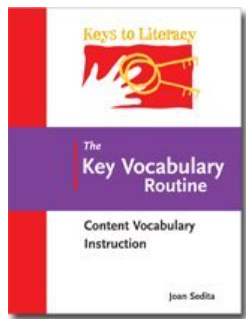
The Writing Revolution
Once you understand the role vocabulary plays in our students’ comprehension abilities, how do you get them to USE it, RETAIN it, and fully APPLY it?! Through writing, of course! The Writing Revolution is framework that helps students acquire, understand, and utilize the vocabulary you teach them through content and text. It is a must-have companion to The Knowledge Gap, and one that you will be thankful you have in your back pocket!
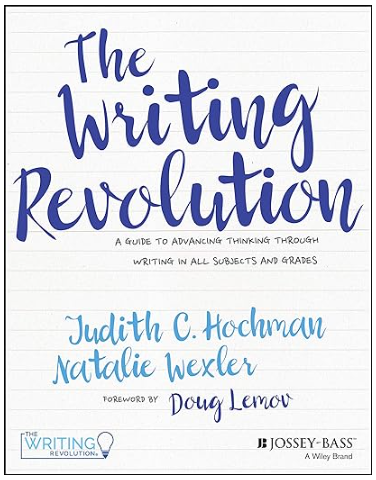
The Vocabulary Playbook
Douglas Fisher and Nancy Frey’s book, The Vocabulary Playbook: Learning Words that Matter, is a book that provides you with practical, fun, and low-risk routines that will help you intentionally build vocabulary instruction into your day. I appreciate the simple activities that provide teachers with ready-to-use lessons for the classroom.
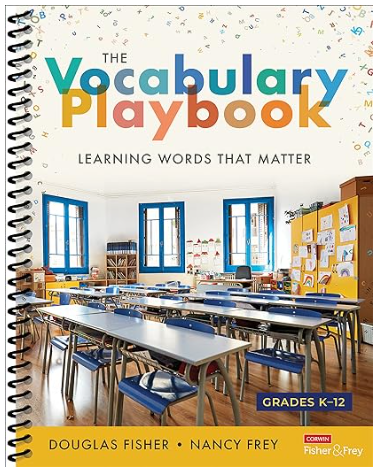
Teaching Words and How They Work
Teaching Words and How They Work: Small Changes for Big Vocabulary Results, by Elfrieda H. Hiebert, will explain how to select the best words from informational text, and help students understand how words work. The book provides both professional knowledge and actionable steps that teachers can take.
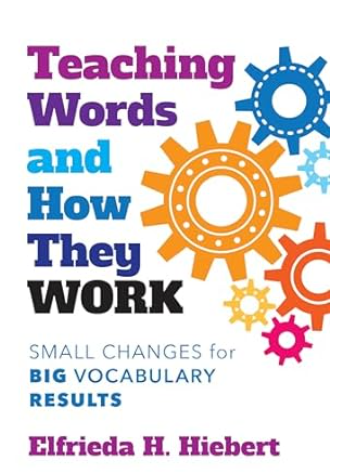
Building Academic Vocabulary
Robert Marzano’s Building Academic Vocabulary: Teacher’s Manual was published in 2005. It’s an older book, but one that many teachers still recommend. The book’s main feature is a six-step process in direct instruction for vocabulary in subject areas. Another feature of this book is the over 7,000 word list that was compiled from national standards documents. The word list is organized into 11 subject areas and four grade-level categories. While it is written for any grade level, you may find this book to be more helpful as an upper grades teacher than a primary teacher.
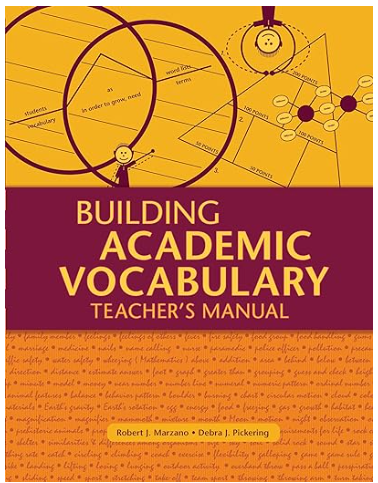
Teaching Vocabulary in the K-2 Classroom
This book isn’t typically mentioned by many, but I found it to be great for some quick lesson ideas for whole group morning meetings, transitions, and more. It’s not going to go into a lot of detail and it doesn’t include specific routines, but it can help you think of ways to use your own vocabulary words in easy-to-use ways. It would be great for some substitute lessons, too!
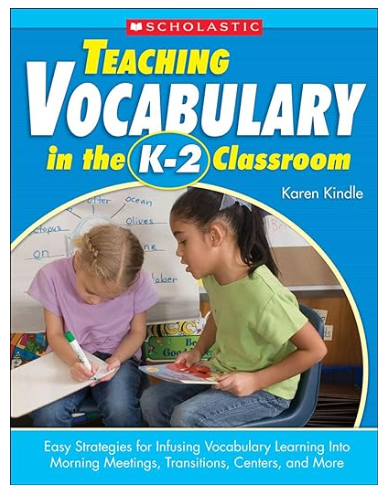
Teaching and Learning Vocabulary
Teaching and Learning Vocabulary: Bringing Research to Practice, is a book by Elfrieda H. Hiebert and Michael L. Kamil. An older book (published in 2005), but presents interventions and addresses English Language Learners, which I appreciate.
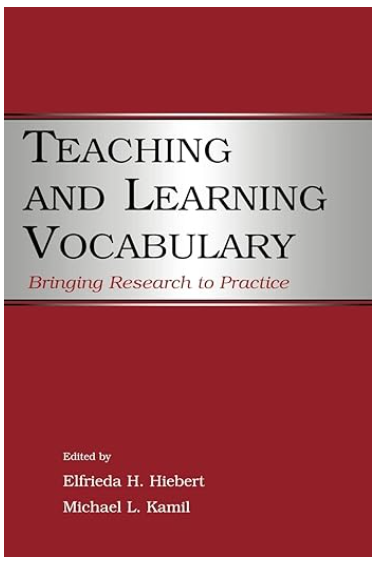
Placing text at the center of the ELA classroom
This professional research text is not a book, but an article that I think is well-worth the read. This article will explain how and why we need to place the text at the hart of our instructional planning. It helps teachers understand the role and importance of close reading, the benefits it has on our students’ comprehension and vocabulary skills, and how we can product strong readers in our schools. If you haven’t read this article yet, you can click the link at the bottom to access it!
The Reading COmprehension Blueprint
The Reading Comprehension Blueprint: Helping Students Make Meaning from Text, is another must-have professional resource book, in my personal opinion! Vocabulary helps us make meaning of what we read, and this book by Nancy Lewis Hennessy contains TONS of valuable information, lessons, examples, research, and more!
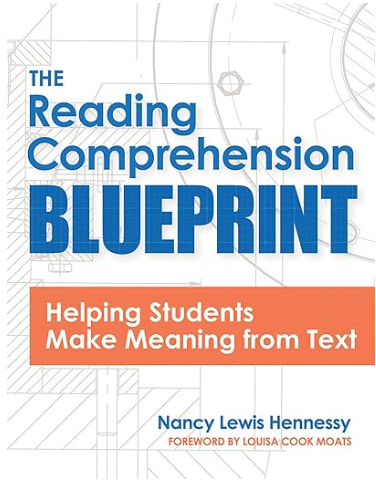
More Vocabulary Resources
What do the different vocabulary tiers mean, and how do you know which vocabulary tier to focus instruction on? What are some engaging ways you can play with words with your students? How can you boost vocabulary in about 15 minutes a day? I answer all of these questions and more in the following helpful blog posts:
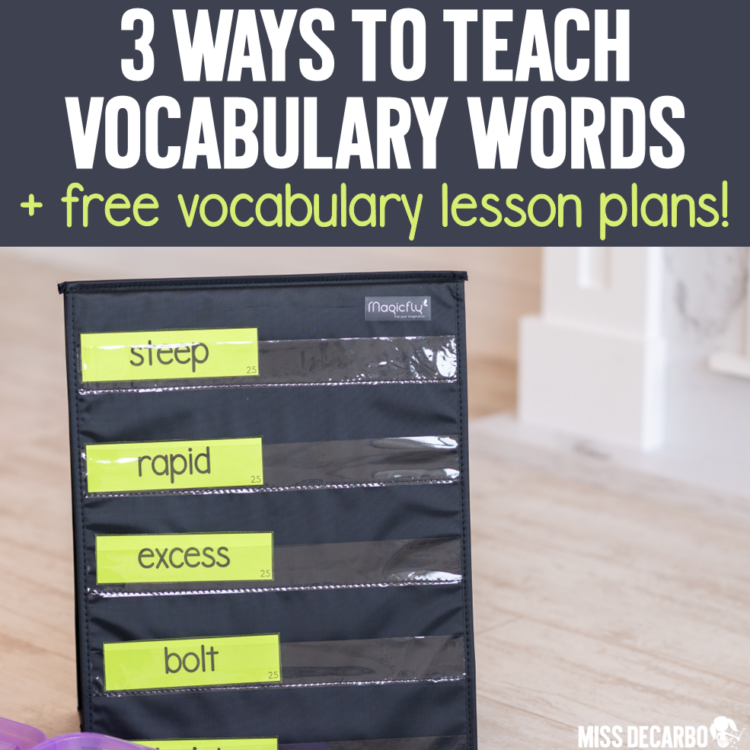
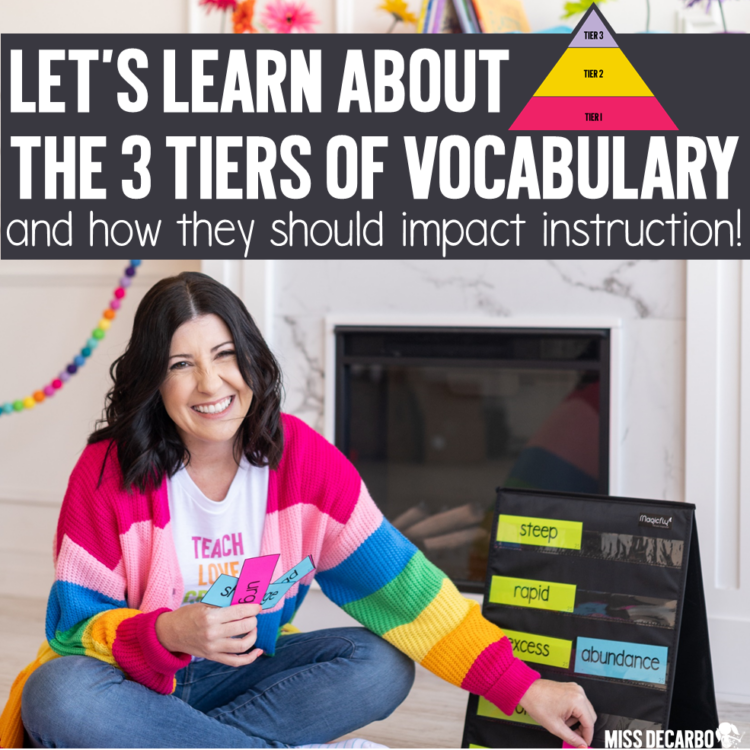
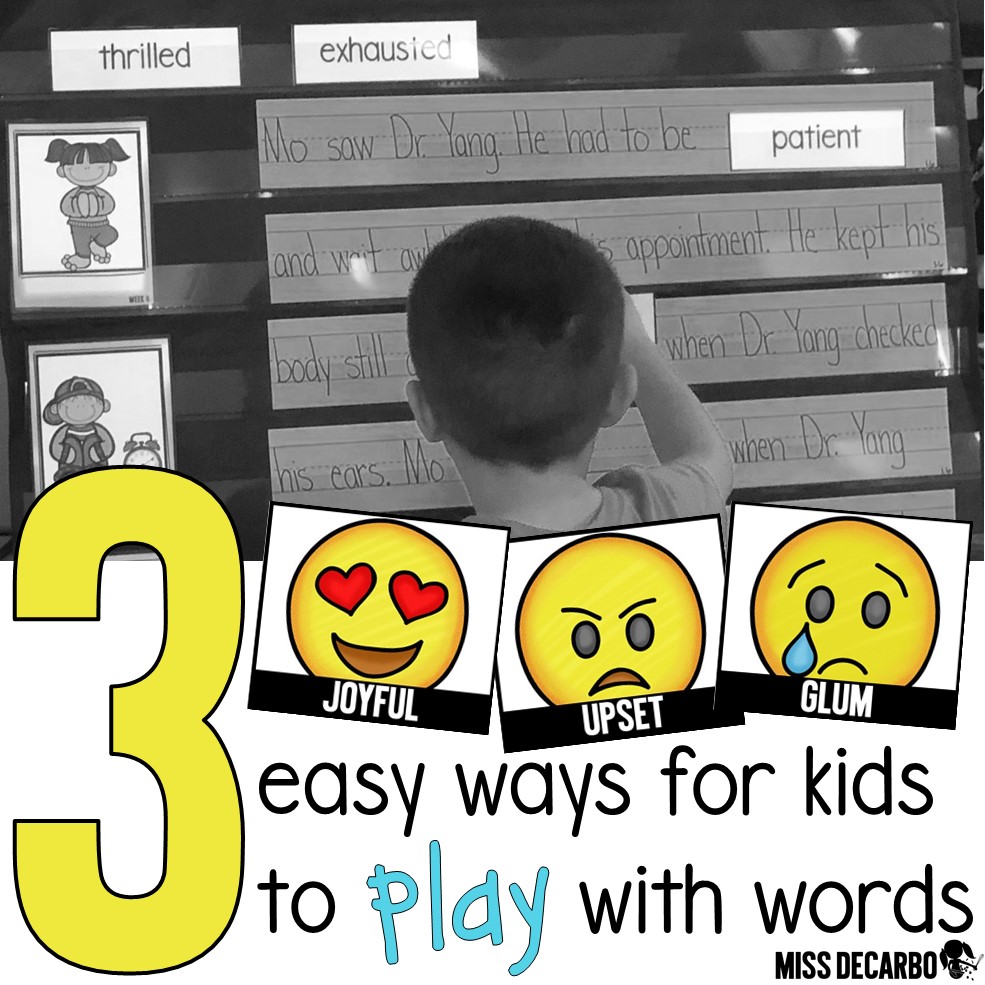
ready to go vocabulary activities
I hope you found this list of vocabulary books helpful! You may be wondering now, how can I implement these strategies into my classroom without spending HOURS and HOURS putting these recommended activities into action?! Luckily, I’ve got you covered! I spent YEARS developing four Vocabulary Activity sets for kindergarten, first grade, and second grade! These quarterly sets will focus on critical Tier 2 vocabulary words and synonyms/antonyms, while integrating read alouds, interactive passages, word play, conversation and oral language development, and more! Your kids will boost vocabulary development and have FUN in only 15 minutes a day!
Click on your grade level below to learn more:
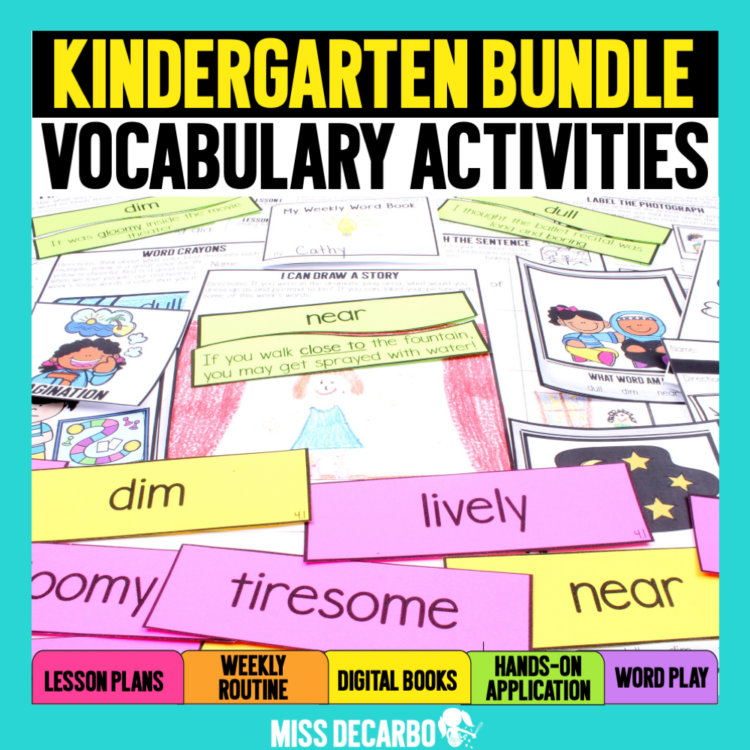
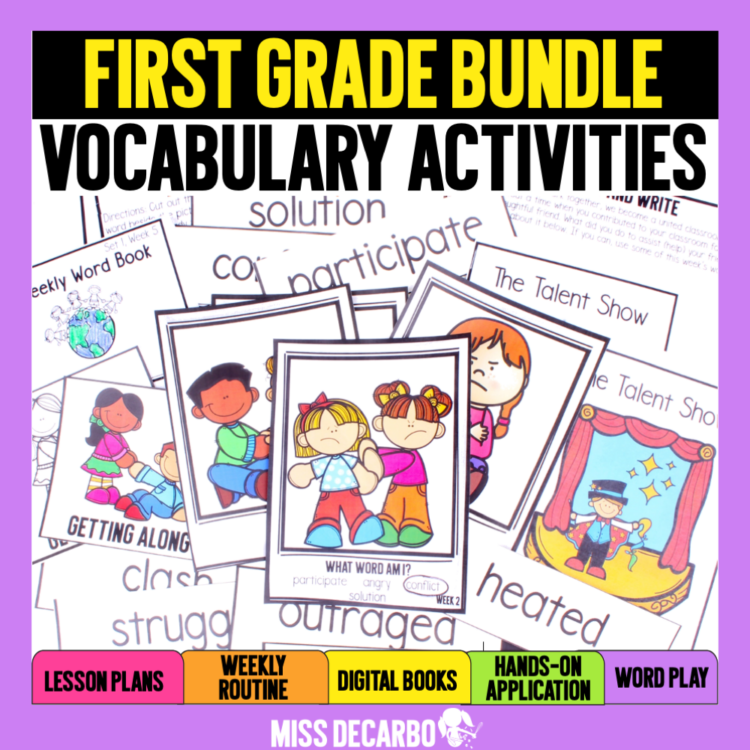
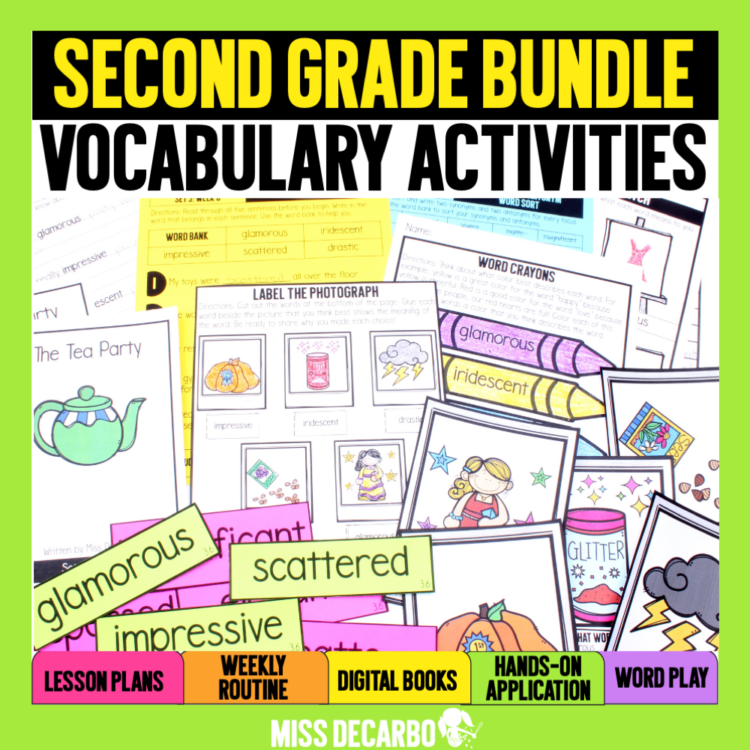
PIn and share These vocabulary Books!
